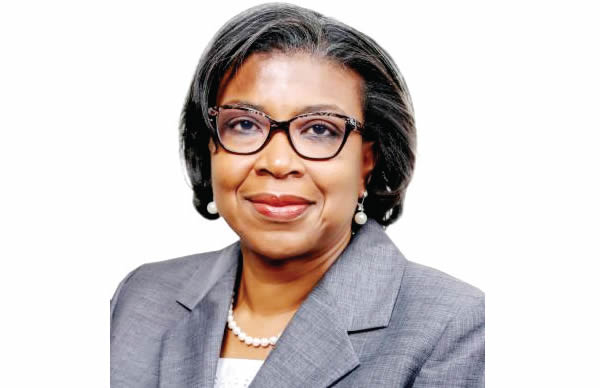Given the tight monetary policy which has affected banks’ investment in the debt instruments, the Debt Management Office, DMO has commenced intensive diversification of investors’ base in Federal Government bonds.
Director-General of the DMO, Ms Patience Oniha, who said this on Sunday in Abuja, explained that private investors’ interests in the bonds had been growing steadily in the last few months.
Oniha said: “Monetary policy has been tight. I think in some way, because of the monetary policy stance, their (banks’) ability has somewhat been reduced but having said that, our goal is to diversify the investment base.
“It’s more like the PFA’s and others are taking up more because we reached out to Pension Funds, to Insurance companies and to other institutions, so I think it’s a good thing.”
The DG expressed delight in the sustained over-subscription of the federal government savings bonds, describing it as a demonstration of investors confidence in the economy.
The DMO boss was hopeful that retail investors would grow in future, noting that “from the very first month of the year, the subscription was good.
”I wouldn’t say very high, if you look at our expectations. What has also happened if you look through, if you buy this month with the savings you have, you might not have built up enough the next month to invest in it again.
“The retail investor typically has to build up savings to be able to invest, so what are we doing? We are doing a lot of sensitisation.”
In terms of the number of investors buying FGN bonds, Oniha said “we will be glad to have larger volumes by being able to get more investors, first time investors, and I think at the last count, we had reached about 10,000 retail investors of the federal savings bonds so that is also a measure of success for us
“We are not looking at concentrating on one investor group which explains why we started diversifying to various other investor segments. We are happy to have foreign investors but we also want to have more domestic investors to participate in the market.”
On the use of Sukuk to fund infrastructure, Oniha described it as work in progress, saying “the Sukuk is not a different borrowing, it is a borrowing that was already included in the budget and then projects that are included in the budget.
“Our first experience was last year, so we are doing roads because the impact was so huge. So we tried that and it worked. So I think going forward, we should be able to extend it to other capital projects.”

